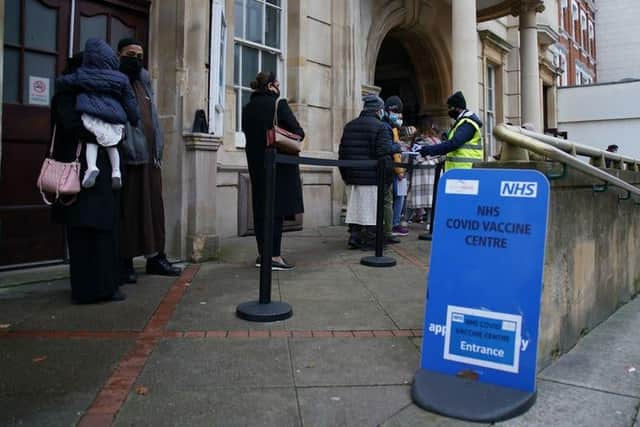More than 15,000 people in Doncaster get Covid booster jab in three weeks
and live on Freeview channel 276
It comes after scientists told the Government boosters are highly effective against hospitalisation for older adults, with second booster jabs for the most vulnerable ruled out for now.
Data from the UK coronavirus dashboard shows 17,697 people received a booster or a third vaccine dose between December 20 and January 9, bringing the total number of people in Doncaster to get a third shot to 164,170.
Advertisement
Hide AdAdvertisement
Hide AdIt means 58 per cent of people aged 12 and over in the area have now had a booster, based on the number of people on the National Immunisation Management Service database.


Meanwhile, data from the UK Health Security Agency shows boosters are 90 per cent effective against admission to hospital from the Omicron variant for the over-65s.
Protection for those with two doses dropped to about 70 per cent after three months and to 50 per cent after six months.
Professor Wei Shen Lim, the Joint Committee on Vaccination and Immunisation’s chairman of Covid-19 immunisation, said the data emphasised the “value of a booster jab”.
Advertisement
Hide AdAdvertisement
Hide AdHe said: “The current data show the booster dose is continuing to provide high levels of protection against severe disease, even for the most vulnerable older age groups.
“For this reason, the committee has concluded there is no immediate need to introduce a second booster dose, though this will continue to be reviewed.”
As the highly infectious Omicron variant continues to spread, scientists are also looking into the possibility of reducing the isolation period from seven to five days, to reduce the staffing crisis across sectors including health, education and public transport.
Prime Minister Boris Johnson said England would stick to Plan B, but testing would be increased in key sectors.
Advertisement
Hide AdAdvertisement
Hide AdCurrent Plan B measures include the wider wearing of face masks, the mandatory use of Covid passes for access to large venues and a return to working from home.
In Scotland, people are also advised to limit gatherings to no more than three households, while Wales and Northern Ireland have ordered nightclubs to shut, as well as introducing other measures on large gatherings and in hospitality settings.
In these confusing and worrying times, local journalism is more vital than ever. Thanks to everyone who helps us ask the questions that matter by taking out a subscription or buying a paper. We stand together. Liam Hoden, editor.
Comment Guidelines
National World encourages reader discussion on our stories. User feedback, insights and back-and-forth exchanges add a rich layer of context to reporting. Please review our Community Guidelines before commenting.